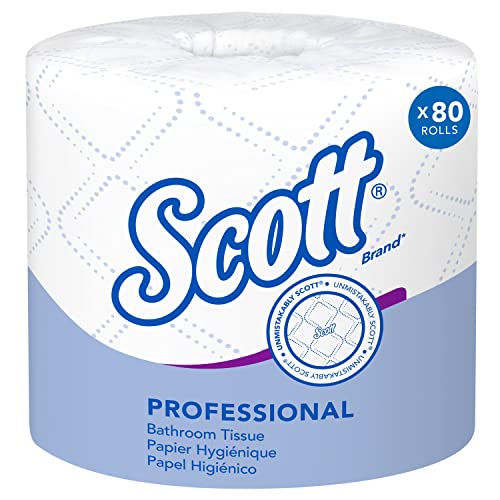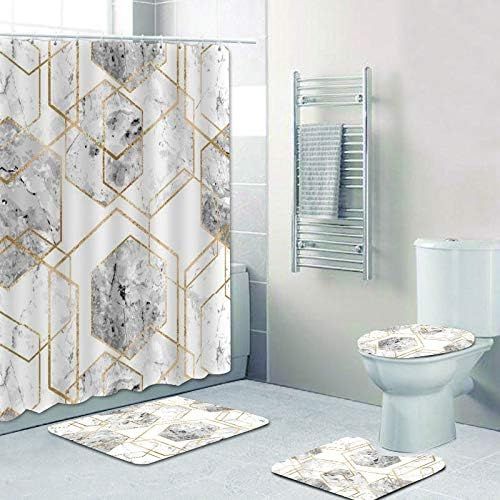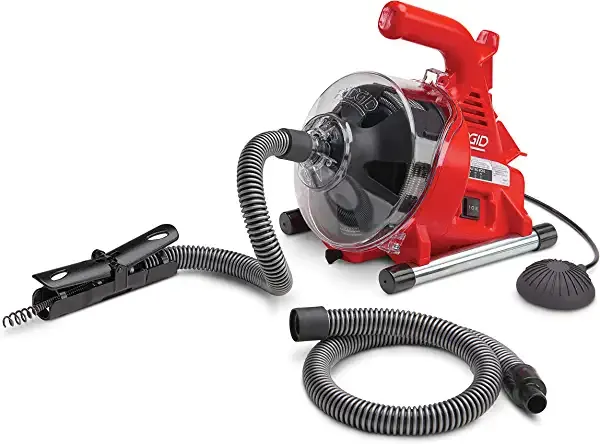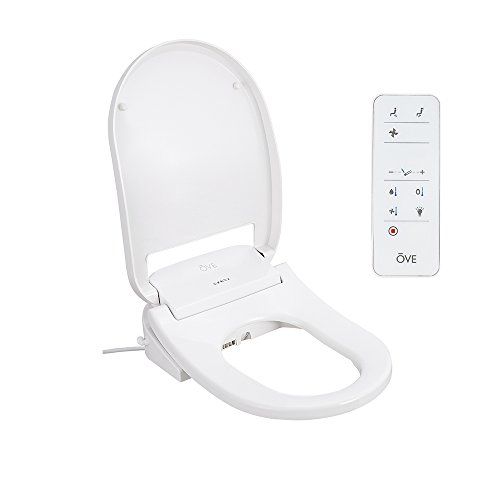What toilet paper is best for septic tanks
Choosing the best toilet paper for septic tanks is crucial for maintaining a healthy and efficient septic system. Septic-safe toilet paper options include single-ply, recycled, rapid-dissolving, and bamboo-based products, which break down quickly and reduce the risk of clogs. Prioritizing these options ensures a comfortable experience without compromising the integrity of your septic tank. Additionally, proper septic system maintenance, such as regular inspections and water conservation, is vital for the overall health of your septic system
.jpg)
When it comes to maintaining a healthy septic tank, selecting the right toilet paper can make all the difference. A septic system is designed to break down and decompose waste, but using the wrong type of toilet paper can disrupt this delicate balance and lead to clogs, backups, and costly repairs. As an expert voice, it is my duty to provide accurate information that can help users make informed decisions when it comes to caring for their septic tanks.
I. Introduction
A. Importance of choosing the right toilet paper for septic tanks
Septic tanks are an essential component of many households' wastewater management systems, particularly in rural areas. Choosing the right toilet paper for septic tanks is crucial to maintain their efficiency and longevity. Using septic-safe toilet paper helps prevent clogging, reduces the frequency of required maintenance, and ensures smooth operation of the septic system. Selecting the appropriate toilet paper not only promotes a healthier septic system but also protects the environment by reducing the chances of groundwater contamination.
B. Potential problems caused by using the wrong toilet paper
Using the wrong type of toilet paper can lead to various problems for your septic tank system. Some of the common issues include:
-
Clogging: Toilet paper that does not dissolve quickly or breaks down slowly can cause clogs in the pipes, leading to backups and overflows in your home.
-
Increased maintenance: Non-septic-safe toilet paper may necessitate more frequent septic tank pumping and cleaning, as it can accumulate in the tank, taking up space and potentially disrupting the system's biological processes.
-
System failure: Continual use of unsuitable toilet paper may contribute to system failures,
-
Resulting in costly repairs or replacement of the entire septic system.
-
Environmental damage: If the wrong toilet paper leads to septic system malfunctions, it can contaminate the surrounding soil and groundwater, causing harm to the local ecosystem and posing health risks to nearby residents.
Understanding the importance of choosing the right toilet paper and the potential problems caused by using the wrong type will help homeowners make informed decisions and maintain a healthy septic system.
A. Biodegradability
One of the most critical factors to consider when choosing toilet paper for septic tanks is its biodegradability. Toilet paper that breaks down quickly and efficiently is less likely to cause clogs or disrupt the biological processes within the septic tank. Look for products labeled as "septic-safe" or "rapid-dissolving" to ensure they have been specifically designed to degrade rapidly in septic systems.
B. Ply and thickness
The ply and thickness of toilet paper play a significant role in its suitability for septic tanks. Generally, single-ply toilet paper is considered more septic-friendly than double or triple-ply, as it dissolves more easily and puts less strain on the system. However, some multi-ply toilet papers are specifically designed to be septic-safe, so it's essential to consider the product's overall qualities rather than relying solely on ply count.
C. Softness and strength
While prioritizing septic safety, it's also important to consider the comfort and functionality of the toilet paper. Striking a balance between softness and strength ensures that the product is both effective and pleasant to use. Many septic-safe toilet papers are engineered to provide a comfortable experience without compromising the integrity of the septic system.
D. Price and budget
Toilet paper costs can vary widely, so it's essential to factor in your budget when making a decision. While some septic-safe options may be more expensive than traditional toilet paper, the long-term savings in maintenance and potential repair costs can offset the higher upfront expense. Remember to compare prices and consider the value of the product in terms of septic safety, comfort, and effectiveness.
E. Environmental impact
The production and disposal of toilet paper can have environmental implications beyond your septic system. When choosing a product, consider its overall environmental impact, including factors such as the sourcing of raw materials, manufacturing processes, and packaging materials. Options like recycled or bamboo-based toilet papers can be more sustainable alternatives, reducing the demand for virgin tree pulp and promoting responsible resource management.
- BBR Score8.8
BBR Score is a ranking system developed by bestbathroom.guide. Score has no relationship or impact from any manufacturers or sales agent websites. Learn more
- BrandTork
- BBR Score9.2
BBR Score is a ranking system developed by bestbathroom.guide. Score has no relationship or impact from any manufacturers or sales agent websites. Learn more
- BrandREEL
- BBR Score9.2
BBR Score is a ranking system developed by bestbathroom.guide. Score has no relationship or impact from any manufacturers or sales agent websites. Learn more
- BrandScott
Cottonelle Ultra ComfortCare Toilet Paper, Soft Biodegradable Bath Tissue, Septic-Safe,
View on Amazon- BBR Score9.4
BBR Score is a ranking system developed by bestbathroom.guide. Score has no relationship or impact from any manufacturers or sales agent websites. Learn more
- BrandCottonelle
- BBR Score9.6
BBR Score is a ranking system developed by bestbathroom.guide. Score has no relationship or impact from any manufacturers or sales agent websites. Learn more
- BrandCharmin
Last update on 2023-04-26 / Affiliate links / Images, Product Titles, and Product Highlights from Amazon Product Advertising API
A. Single-ply toilet paper
Single-ply toilet paper is generally more septic-friendly than thicker alternatives because it dissolves more easily and puts less strain on the system. It's a practical choice for households with septic tanks, as it helps reduce the risk of clogs and minimizes the need for frequent maintenance. While single-ply toilet paper may not be as plush or thick as other options, it offers a balance between functionality and septic safety.
B. Recycled toilet paper
Recycled toilet paper is an environmentally responsible choice, as it utilizes post-consumer waste instead of virgin tree pulp. Many recycled toilet papers are also septic-safe, as they tend to break down more easily than conventional options. By choosing recycled toilet paper, you can contribute to reducing the environmental impact of paper production while maintaining the health of your septic system.
C. Rapid-dissolving toilet paper
Rapid-dissolving toilet paper is specifically designed to break down quickly in water, making it an ideal choice for septic systems. These products minimize the risk of clogs and help maintain the balance of the system's biological processes. Look for toilet paper labeled as "septic-safe" or "rapid-dissolving" to ensure you're selecting a product that will be gentle on your septic tank.
D. Bamboo-based toilet paper
Bamboo-based toilet paper is a sustainable alternative to traditional wood pulp options, as bamboo is a rapidly renewable resource that requires less water and fewer pesticides to grow. Many bamboo toilet papers are also septic-safe, breaking down easily and reducing the risk of clogs. By choosing bamboo-based toilet paper, you can support eco-friendly production methods while protecting the health of your septic system.
A. Scott Rapid-Dissolving
Scott Rapid-Dissolving toilet paper is specifically designed for use in septic systems, RVs, and boats. It breaks down quickly, reducing the risk of clogs and promoting smooth operation of your septic tank. The single-ply sheets offer a balance between softness and strength, ensuring a comfortable experience without compromising septic safety.
B. Seventh Generation
Seventh Generation is known for its eco-friendly household products, and their toilet paper is no exception. Made from 100% recycled materials, it's an environmentally responsible choice that is also septic-safe. The two-ply design offers a soft and durable experience while still breaking down effectively in your septic system.
C. Caboo Tree-Free Bamboo
Caboo Tree-Free Bamboo toilet paper is a sustainable option made from a blend of bamboo and sugarcane fibers. This rapidly renewable alternative to traditional wood pulp toilet paper is gentle on the environment and septic-safe. The two-ply sheets provide both softness and strength, making it a comfortable and responsible choice for your household.
D. Cottonelle Ultra CleanCare
Cottonelle Ultra CleanCare toilet paper o ffers a balance between comfort and septic safety. The one-ply sheets are designed to be strong and effective while still breaking down easily in septic systems. This product's unique wavy texture ensures a thorough clean, and its septic-safe properties make it a popular choice for homeowners with septic tanks.
E. Charmin Ultra Soft
Charmin Ultra Soft is a well-known brand that offers a plush and comfortable experience without sacrificing septic safety. Although it's a two-ply toilet paper, it's designed to dissolve quickly and efficiently in septic systems. Its softness and effectiveness make it a popular choice for households seeking both luxury and septic tank compatibility.
A. Avoid flushing non-degradable items
To keep your septic system functioning optimally, refrain from flushing non-degradable items such as baby wipes, feminine hygiene products, paper towels, or dental floss. These materials can cause clogs and disrupt the biological processes within the septic tank. Instead, dispose of these items in the trash to minimize the risk of septic system issues.
B. Use septic tank additives occasionally
While not always necessary, using septic tank additives occasionally can help maintain the balance of beneficial bacteria in your system. These additives can aid in breaking down waste and preventing clogs. However, it's essential to choose additives that are specifically designed for septic systems and follow the manufacturer's instructions for use.
C. Schedule regular septic tank inspections and pumping
Regular inspections and pumping are crucial for maintaining a healthy septic system. Experts recommend scheduling inspections every one to three years, depending on the size of your tank and household usage. Pumping frequency varies, but typically, septic tanks should be pumped every three to five years. Regular maintenance can help identify potential issues early, preventing costly repairs or system failures.
D. Conserve water and use septic-safe cleaning products
Water conservation not only benefits the environment but also helps maintain the proper functioning of your septic system. Reducing water usage minimizes the strain on the system and allows for more efficient waste breakdown. Additionally, using septic-safe cleaning products, such as laundry detergents and household cleaners, can prevent the disruption of beneficial bacteria within the septic tank. Always look for products labeled as septic-safe or biodegradable to ensure they are compatible with your system.
A. Recap of the importance of choosing the right toilet paper for septic tanks
In conclusion, selecting the appropriate toilet paper for septic tanks is crucial to ensure the smooth operation and longevity of your system. The right toilet paper reduces the risk of clogs, minimizes the need for frequent maintenance, and promotes a healthy balance within the septic tank. It also helps protect the environment by reducing the chances of groundwater contamination.
B. Encouragement to prioritize septic-safe toilet paper options
It's essential to prioritize septic-safe toilet paper options, such as single-ply, recycled, rapid-dissolving, or bamboo-based toilet papers. These products are specifically designed to break down quickly and efficiently, reducing the risk of clogs and maintaining the health of your septic system. By choosing septic-safe options, you can ensure a comfortable experience without compromising the integrity of your septic tank.
C. Reminder to practice proper septic system maintenance
In addition to using septic-safe toilet paper, it's vital to practice proper septic system maintenance. This includes avoiding flushing non-degradable items, using septic tank additives occasionally, scheduling regular inspections and pumping, and conserving water while using septic-safe cleaning products. By following these guidelines, you can keep your septic system functioning optimally and avoid costly repairs or system failures.












.jpg)








